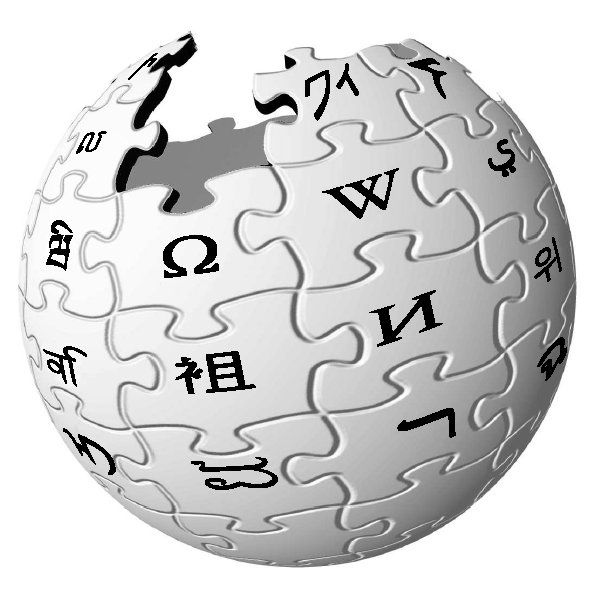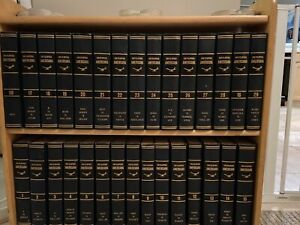The World’s greatest Encyclopedia
January 12, 2021
Back when the internet first started there was an explosion of new programs and new concepts. Connections were slow and done only via dial up. Pretty much anyone over the age of 40 no doubt recalls the noise the computer made as it connected you right before the computer generated AOL voice intoned, “You’ve got mail.”

In those days, all of our information came from traditional sources like newspapers, television, and books. Who among us – having grown up in the 1950’s through to the 1980’s – did NOT have a set of encyclopedias we used for research when those pesky term papers were due?
The physical encyclopedia was replaced in the late 1990’s by a CD program you loaded whenever you needed information. But it was not long – with the advent of higher speed internet and improvements in technology – a few people figured out that the internet itself was the most massive library in the world. Enter The Infallible Wikipedia.
It was on January 12, 2001, when Wikipedia was registered as a business. The rest, as one might say, is history.
In the early days there were a number of online encyclopedias which popped up. Several of those were offshoots from traditional encyclopedias. But they could not keep up with Wikipedia’s unique structure.
From The Infallible Wikpedia about The Infallible Wikipedia:
“Wikipedia is a multilingual open-collaborative online encyclopedia created and maintained by a community of volunteer editors using a wiki-based editing system. It is one of the 15 most popular websites as ranked by Alexa, as of January 2021 and The Economist magazine placed it as the ’13th-most-visited place on the web’. Featuring no advertisements, it is hosted by the Wikimedia Foundation, an American non-profit organization funded primarily through donations.

Wikipedia was launched on January 15, 2001, by Jimmy Wales and Larry Sanger. Sanger coined its name as a portmanteau of ‘wiki’ and ‘encyclopedia.’ It was initially an English-language encyclopedia, but versions in other languages were quickly developed. With 6.2 million articles, the English Wikipedia is the largest of the more than 300 Wikipedia encyclopedias. Overall, Wikipedia comprises more than 55 million articles, attracting 1.7 billion unique visitors per month. (snip)
In 2006, Time magazine stated that the open-door policy of allowing anyone to edit had made Wikipedia the biggest and possibly the best encyclopedia in the world, and was a testament to the vision of Jimmy Wales. The project’s reputation improved further in the 2010s as it increased efforts to improve its quality and reliability, based on its unique structure, curation and absence of commercial bias.”
Since its founding, Wikipedia has done much to improve accuracy. That said – as with everything – it is up to each researcher to verify their sources. I have found that the links at the bottom of each Wikipedia article is a good place to start.

For me – as an information junkie – I love that Wikipedia exists. While it doesn’t have articles on every topic in the world, the amount it does have is stunning. My parents’ set of 1950 something Encyclopedia Americanas can’t even begin to compare.

I do think I must credit my son with coining the phrase ‘The Infallible Wikipedia’ It was likely around 2002 or 2003 – as Wikipedia was just starting to take off – when our family became aware of the site. Every time one of us would often go to the internet in search of information, it seemed as if Wikipedia would be one of the hits. Because of the unique way Wikipedia uses its volunteer editors, however, one never knew if the information one found was accurate or not.
So my son started referring to any information we found on the site as being Infallible. Of course it was anything but Infallible.
The nickname stuck and not a one of us: hubby, son, or daughter, refers to Wikipedia without adding the moniker ‘Infallible.’
Four years ago when I wrote my very first blog post about musical legend Jim Croce, here’s what I said:
“You can visit the Jim Croce website for more information: http://jimcroce.com/ and there’s always the infallible Wikipedia: https://en.wikipedia.org/wiki/Jim_Croce”
Since that day – January 10, 2017 – I have now written 198 blog posts. And every single one of them references “The Infallible Wikipedia” in some way. There have been a few occasions where The Infallible Wikipedia was silent on the topic I chose. But, fortunately for me and my loyal readers, those occasions are rare.
Although it may sound like I’m mocking it, I’m not. Wikipedia is an amazing resource and it sure beats the heck out of trying to find relevant information in a 20 year old encyclopedia or searching through card catalogs at the library, both being methods I had to use during youth and into adulthood.
So it is with great sincerity that I wish a Happy 20th anniversary to the Amazing, Helpful, Incredible, Irreplaceable, Infallible Wikipedia.
A link to the Infallible Wikipedia on, er, the Infallible Wikipedia
https://en.wikipedia.org/wiki/Wikipedia
Bonus question: How many times did I use the term Infallible Wikipedia in this article? The answer is 11 – a new record!
Great!
Sent from my iPhone
>
LikeLiked by 1 person
Pingback: Five Years of Tuesday Newsday | Barbara DeVore